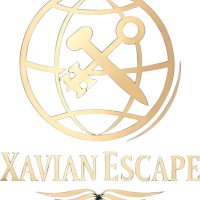Conference planning is both an art and a science. From selecting the perfect venue to coordinating logistics and managing speakers, there are numerous aspects to consider when organizing a successful conference. In this blog post, we will delve into the world of conference planning and provide you with valuable tips and tricks to ensure your next event is a resounding success.
First and foremost, one of the key elements of conference planning is selecting the right venue. The venue sets the tone for the entire event and can greatly impact the experience of attendees. Consider factors such as location, capacity, amenities, and ambiance when choosing a venue that aligns with your conference objectives.
Once you have secured a venue, the next step is to create a detailed timeline and schedule for the conference. A well-planned schedule ensures that all sessions, breaks, and activities run smoothly and on time. Be sure to allocate sufficient time for registration, networking, and Q&A sessions to keep attendees engaged throughout the event.
Another critical aspect of conference planning is managing speakers and presentations. Work closely with speakers to ensure they are well-prepared and have all the necessary resources for their presentations. Consider creating a speaker briefing document outlining key information, session objectives, and logistical details to help speakers deliver their best performance.
In addition to managing speakers, effective communication is essential for successful conference planning. Keep attendees informed through regular updates via email, social media, and the conference website. Encourage networking opportunities by creating online forums or discussion groups where attendees can connect and share insights before, during, and after the event.
Furthermore, don’t overlook the importance of branding and marketing in conference planning. Develop a strong visual identity for the event, including a logo, color scheme, and promotional materials that reflect the theme and objectives of the conference. Utilize various marketing channels to reach your target audience and generate buzz around the event.
On the day of the conference, ensure that all logistical details are carefully coordinated. Set up registration desks, signage, and audiovisual equipment in advance to avoid last-minute issues. Assign dedicated staff or volunteers to assist attendees and address any concerns that may arise during the event.
Finally, after the conference concludes, take the time to gather feedback from attendees, sponsors, and speakers. Conduct surveys or interviews to evaluate the success of the event and identify areas for improvement. Use this feedback to inform future conference planning efforts and continuously enhance the attendee experience.
In conclusion, conference planning requires meticulous attention to detail, effective communication, and strategic thinking. By following these tips and tricks, you can master the art of conference planning and deliver memorable events that leave a lasting impression on attendees. Happy planning!

